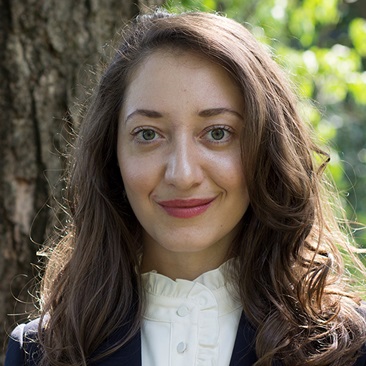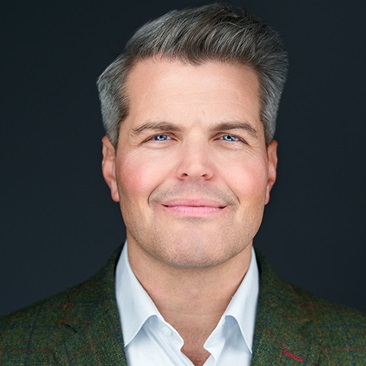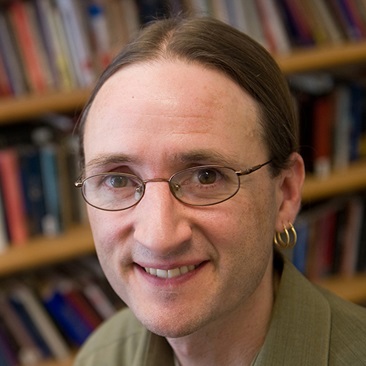The Courts and Public Opinion
September 1, 2006
When Supreme Court Justice Antonin Scalia invited Vice President Dick Cheney to join an exclusive duck-hunting excursion in Southern Louisiana, it might have been little more than a gentlemen's holiday —that is, if the Supreme Court weren't three weeks into reviewing In re Richard B. Cheney, a case involving participants in the energy task force run by the vice president, which helped shape the Bush Administration's energy policy. Instead, the 2004 hunting trip became a target for criticism of Scalia and of the impartiality and independence of the American judicial system in general.
Federal law requires federal judges, including Supreme Court justices, to recuse themselves "in any proceeding in which his or her impartiality might reasonably be questioned." Despite a motion filed by the Sierra Club asking Scalia to disqualify himself, he instead issued a rare 21-page memorandum, dismissing any accusations of impropriety and denouncing attendant press coverage.
Was there any evidence Cheney had attempted to influence Scalia's decision making in the duck blind?
"No, but it didn't look good, and that appearance of bias is problematic," says Keith Bybee, the Michael O. Sawyer Professor of Constitutional Law and Politics at the Maxwell School. In this case, the contact between the politician and the judge was only potentially problematic; the checkered relationship between the judge and the media probably made it seem worse than it was.
"Much of the legitimacy and good will the courts enjoy hinge on appearance," Bybee adds. "People have to be convinced, even if they don't know much about the actual case, that it was handled in an impartial manner."
The American judicial system is rooted in the concept of judicial independence—the freedom we give judges to act as principled decision-makers relying only on the facts and the law, rendering their decisions free of ideological, political, or economic influence.
Or, at least that's the idea. In truth, there has been debate throughout American history—dating back to the ratification of the Constitution—over the power that courts wield and their ability to operate with true independence. The debate has grown especially loud recently, thanks to the:
- under-funding of court systems,
- increased politicization of the judicial appointment process,
- further rise of deeply contentious social issues onto the court dockets, and
- advent of the Internet and a relentless 24/7 media.
"This is an old debate made new," says Bybee, who runs the Sawyer Law and Politics Program at Maxwell.
Bybee is also director of the Institute for the Study of the Judiciary, Politics and the Media (IJPM) at Syracuse University, a new, collaborative effort of the Maxwell School, the Newhouse School of Public Communications, and the SU College of Law. Already up and running with symposia, research projects, an affiliated graduate-student organization, and a major publication in the works, IJPM works across disciplines to better understand the many spaces where government, media, and the law interact.
According to a 2005 national poll conducted by the Maxwell School, nearly three-quarters of Americans believe judges should be shielded from outside pressures and allowed to make decisions based upon their reading of the law. But more than 80 percent of respondents also believe that judges are influenced by partisan considerations, either somewhat or a lot.
"We need to think more carefully about how the courts manage to foster such conflicting public perceptions," says Bybee. "Instead of simply demanding that we rally in defense of judicial independence, the current situation presents us with an opportunity to re-conceive our understanding of how judicial independence and legal power operate in the first place."
Worth studying, for example, is the election of state judges. While federal judges and Supreme Court judges are appointed for life, a recent New York Times editorial noted that "39 states still choose at least some judges by election, instead of some preferable form of non-elective merit selection system." Spending on campaigns for state supreme courts rose from $29 million in 2002 to $42 million in 2004, and is likely to spiral even higher with "pressure on candidates from interest groups seeking firm commitments, in writing, on controversial issues likely to intensify," the Times wrote.
"These elections are getting expensive," Bybee concurs, adding that in some states the most expensive election will not be the race for governor or the race for U.S. Senate, but for state supreme court.
Elected judges rely on financial support from voters and often from special interest groups. The perceived (if not actual) independence of a judge who owes a seat to contributions from politicians, corporate executives, or lawyers may suffer in the eyes of the public.
“We need to think more carefully about how the courts manage to foster such conflicting public perceptions.”
Keith Bybee
Director, Institute for the Study of the Judiciary, Politics and the Media
"More than ever before, special interest groups seek to secure the election not of fair and impartial judges but of judges who will decide in their favor," said Mississippi Supreme Court Justice James E. Graves Jr. '81 M.P.A. at a Syracuse University-sponsored symposium last October. "From oil, tobacco, and pharmaceutical companies, to the insurance defense bar, to prosecutors, to the religious right, to labor unions, to the plaintiffs' personal injury bar, to medical doctors and other healthcare providers, all seek to control the courts and the judges."
But it's naive to think that a merit-based appointment system eliminates politics from the process. The judicial appointment process also has the potential to be compromised by partisan politics and special interests, as judges have become tied to patronage systems and cronyism that casts doubt on the independence of their judicial decision making.
"Politics are always going to be there," says Bybee. "The only question is whether it's behind closed doors or whether you're going to open those doors and let the people decide."
Whether elected or appointed, judges today at all levels face increased pressure to reach specific results, rather than just to resolve disputes based on their own independent reading of the law.
"There have been periods in American history when judges have faced similar pressure, but the current situation may be worse given the ability of opposing political parties and competing single-issue interest groups to mobilize on behalf of favored judicial candidates in every part of the country," says Bybee.
Elected officials with partisan voter bases sometimes try to politicize the courts; a politician's overt lobbying on key issues plays well with his or her base, and helps with reelection. "If you are an anti-abortion Republican candidate for office, it may be helpful for you to beat up on the courts again and again regarding decisions protecting abortion rights," says Tom Keck, an assistant professor of political science at Maxwell and author of The Most Activist Supreme Court in History: The Road to Modern Judicial Conservatism (University of Chicago Press).
And, if the notion of judicial independence is sullied, will the public eventually demand a diminution in the powers of the court? "If all we're constantly hearing is that judges simply impose their own will on us, then it doesn't make sense to give all this power and authority to these judges," says Keck. "When you start talking about taking some of that power away, it creates a fairly meaningful recipe for assault on judicial power."
It's safe to say that, 50 years ago, if a vice president and Supreme Court justice went duck hunting together, the American public would never even have known. How times have changed! We live in an age of constant media bombardment, and those media possess a quenchless craving for anything that smells even a little foul. Factoring this in—taking into account the media's role in questions of judicial impartiality—is a big part of what makes the IJPM especially potent.
In the week following President George W. Bush's nomination of Samuel Alito Jr. to the Supreme Court, dozens of articles about him appeared in just the New York Times and the Washington Post alone. The 24-hour TV news channels jumped at material to help fill airtime. And, on talk radio, political pundits debated Alito's perceived political views and stance on important issues.
How did the media make its determinations about Alito's tendencies and possible biases? As with most legal coverage, by examining the decisions in Alito's court record. According to Mark Obbie, a visiting professor at the Newhouse School and an associate director of IJPM, that approach is flawed.
"Focusing strictly on the result that comes out of a decision does not tell the whole story," says Obbie, who is the former executive editor of The American Lawyer magazine. "If you don't understand why courts rule the way they do, you can't intelligently critique the decision. Too often news stories don't ask the question, 'How did we get here?'"
In truth, most court decisions are made in accordance with established legal precedent. A law or precedent may compel a judge to vote in a certain way (even if he or she disagrees intellectually). By failing to report that, the media may instead frame decisions as being politically motivated.
"There is potential for the media to reduce public confidence in the judiciary when a particular judge has done nothing wrong," says Lisa Dolak, professor of law at Syracuse University and associate director of the IJPM (and a former appellate law clerk). "There's an absence of mention that there was precedent the judge was governed by. This happens all the time."
The judicial system is partly to blame. Judges could clarify matters by discussing their decisions, but judicial ethics and state codes of judicial conduct restrain a judge's ability to speak to the press. While codes vary state by state, most judges are not allowed to make public comment about any pending or impending court proceeding. Most do not comment on completed proceedings either, offering only their written decision as their commentary.
According to some experts, this silence contributes to a dearth of intelligent legal commentary in the media. "Court justices can do a much better job of explaining the role of the courts and how they do their jobs to the public without breaking the rules," says Obbie.
The real reason judges don't talk to the media, he says, is fear of being attacked for the decision they've made. Considering the polarity of many issues facing the courts these days—gay marriage, for example, or the Pledge of Allegiance in public schools—it's not difficult to understand.
"They have to explain that they had to make a certain decision under the law, but it's hard to get that message out," says Obbie. "Instead of risking personal attack, they just stop trying."
According to Virginia Circuit Court Judge Joanne F. Alper '72 B.A. (Am.St.), "The judiciary is caught in the middle of a highly politicized and emotional atmosphere, caused in large part by the 24-hour news cycle; advanced by politicians who are either ignorant of, or choose to ignore, the proper role of the courts; and accepted by a citizenry often uninformed about the role of the judge as impartial arbiter with the responsibility of enforcing the laws."
Alper was speaking at last October's symposium, which was titled "Bench Press: The Collision of Media, Politics, Public Pressure, and an Independent Judiciary." The symposium (which was partly Alper's idea) brought together more than two-dozen leading figures in law, academia, and journalism in Washington, D.C., for panel discussions on the role of the courts in public life.
"It was evident to everyone who participated that we had only scratched the surface," says Bybee, who has edited a volume of essays generated from the symposium, to be published by Stanford University Press in 2007. Given that Syracuse University includes three schools significant in the fields of media, law, and politics, the idea for the Institute for the Study of the Judiciary, Politics, and the Media was natural. In June, SU Chancellor Nancy Cantor endorsed it and provided seed funding for three years.
"This is not a think-tank venture," says Dolak. "We want to educate the next generation of legal scholars, political scientists, and legal reporters to make a real-world contribution."
It couldn't come at a more important time. In August, the national Conference of Chief Justices voted to start an initiative intended to change the deteriorating culture of judicial elections. In September, the Judicial Conference of the United States—which oversees the administration of United States courts—announced steps aimed at greater judicial accountability, including the requirement that all federal judges below the Supreme Court level use "conflict-checking" computer software to avoid participating in cases in which they have a financial interest. That happened to be the same day the New York Times ran its editorial criticizing the election process of state judgeships.
Despite its flaws, an independent judiciary has been adopted by nearly every newly democratized nation in the modern era.
"They differ in the details, but an independent judiciary is widely viewed as a central feature of democratic government," says Keck. "If the guy that runs the military and the police forces can also tell the judges what to do, then you've got a recipe for tyranny. Having an independent judiciary to make sure laws are equally and fairly applied is an important guarantee of liberty and equal treatment."
This article appeared in the Fall 2006 print edition of Maxwell Perspective; © 2006 Maxwell School of Syracuse University.
Related News
Commentary

Apr 2, 2025
School News

Mar 21, 2025
Commentary

Mar 14, 2025


